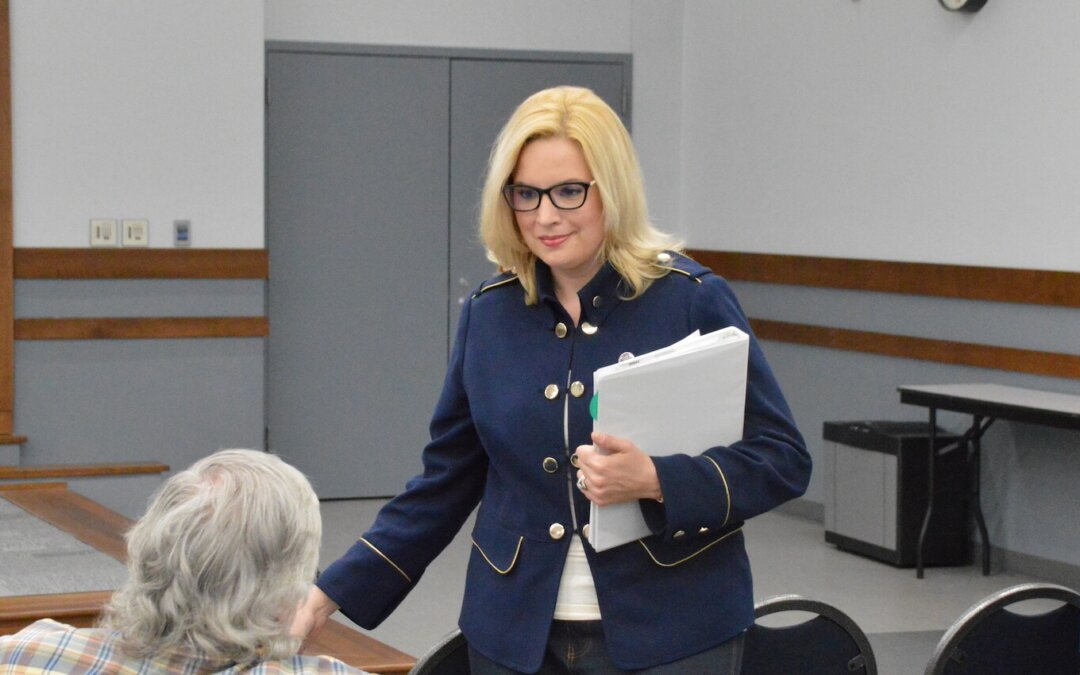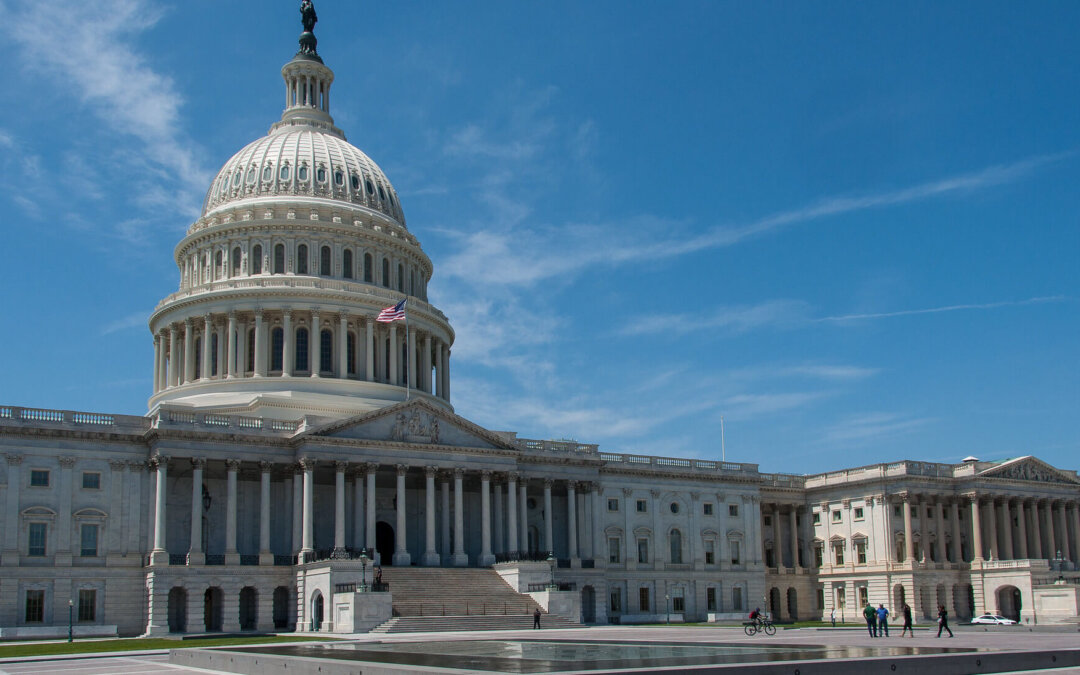
Photos clockwise from top-left: Congresswoman Abby Finkenauer (IA-01), former State Senator Rita Hart (IA-02), Congressman Steve King (IA-04), Congresswoman Cindy Axne (IA-03.
Not only is Iowa ground zero for the dozens of Democratic presidential candidates competing for Iowans’ support in 2020, the state will also play a pivotal role in the battle for control of the U.S. House.
Though Democrats feel good about their chances to retain at least three of Iowa’s four congressional seats, given President Donald Trump’s popularity among Republicans and the party’s control of state politics, a GOP takeover of the districts is not impossible. There’s a scenario where Iowa could send four Democrats to the U.S. House after 2020; there’s a potential the state sends four Republicans. Both are completely plausible outcomes.
Whichever side comes out on top next year, the margin of victory likely will be narrow.
“Iowa really is ground zero from an offensive and defensive perspective,” Illinois Congresswoman Cheri Bustos, chair of the Democratic Congressional Campaign Committee, told Starting Line.
While the much-anticipated “blue wave” of 2018 didn’t break the Republican hold on the Iowa Statehouse, it did boost the party’s ability to retake the House of Representatives in D.C.
“I don’t remember a time when the entire map in Iowa was this competitive,” said Christopher Larimer, a political science professor at the University of Northern Iowa.
The midterm election resulted in a net gain of 40 House seats for Democrats, giving the party a 235-198 majority over the Republicans.
First-time members of Congress Abby Finkenauer of Dubuque and Cindy Axne of West Des Moines unseated Republican incumbents in 2018, and seven-term Rep. Dave Loebsack kept a firm grip on the 2nd District.
Though J.D. Scholten of Sioux City came up just short against Republican Rep. Steve King in the 4th District, the congressman has at least three primary challengers this cycle and has lost the support of some important players in the Republican Party. In April, fundraising numbers showed King challenger State Sen. Randy Feenstra received a campaign contribution from former Iowa Gov. Terry Branstad, now serving as President Donald Trump’s Ambassador to China.
So far, no Democrat has entered the race in the conservative, western Iowa district. But given Scholten’s close race in 2018, the party hasn’t written it off. Scholten himself appears to still be actively considering a run.
Bustos said the national party was “working very closely” with Democrats in the district to field a candidate.
“That’s the goal, we want to defeat him,” said Bustos, of Rep. King. “He is incapable, literally incapable of representing that district because of his own party banning him from the legislative process. Our goal would be to get the best candidate that we possibly can, and we’re still working on that.”
[inline-ad id=”0″]
In January, King was removed from his congressional committees by House Republican leadership unhappy with his latest commentary on white supremacism and white nationalism.
The Cook Political Report considers Iowa’s 1st, 2nd and 3rd Congressional Districts a “Democratic Toss Up,” of which there are 17 nationwide. No other Midwestern state has multiple Democratic House seats in play, according to Cook’s analysis. Besides Iowa, only New York and Virginia have more than one Democrat in a competitive district.
Thirty-one House Democrats represent districts Trump won in 2016, while only three Republicans will defend districts that voted for then-Democratic nominee Hillary Clinton. Ten are in Midwestern states, including Illinois, Iowa, Michigan, Minnesota and Wisconsin.
So while there is ample opportunity for sustained victory in 2020, if Democrats don’t perform well in Iowa and other swing states, a lane opens for Republicans to win the 18 or 19 seats needed to retake the House.
“Trump won my district by 4.1% and he won Iowa by over 9%, and if things are moving in the Democrats’ direction in Iowa, I think that will be an indication that things are going well for Democrats across the country,” said Loebsack.
A portion of the DCCC’s 2020 effort includes Bustos’ “Frontline Program” to help Democrats “build a majority that lasts well into the future.”
“In order for us to stay in the majority, we have to make sure that what we call our ‘frontliners’ come back,” Bustos said of the swing seat Democrats. “And Cindy Axne and Abby Finkenauer are two of our frontliners. From a defensive strategy, Iowa is absolutely critical.”
Loebsack’s decision to retire leaves the 2nd District open to new representation for the first time since 2006. Rita Hart, a former state senator from Wheatland, is the party favorite there. She does not yet have a contested primary, and most notable Democrats in the district have already endorsed her. A farmer and retired educator, Hart was Fred Hubbell’s running mate during his 2018 gubernatorial bid.
Thomas Kedley, the Republican mayor of Osceola in southern Iowa, currently is the lone Republican in the race. Christopher Peters, a surgeon from Coralville who challenged Loebsack in 2016 and ‘18, announced in April he would not run again in 2020.
Last month, former Republican Congressman Bobby Schilling told the Iowa City Press-Citizen he was considering a run for Loebsack’s seat. In 2017, Schilling moved to Iowa from west-central Illinois, where he represented the district now held by Bustos.
To keep hold of the newly minted swing district, Loebsack said the Democratic candidate’s “primary focus has to remain on the issues.”
“That doesn’t mean, however, that we can’t chew gum and walk at the same time,” he said. “Clearly these (House) committees that are doing their investigations (into President Trump) are going to move forward with their inquiries, and I think that’s important that we continue to do that.”
Neither Finkenauer in the 1st District or Axne in the 3rd are expected to face a primary challenge.
Republican state Rep. Ashley Hinson, a former TV news anchor in Cedar Rapids, launched her candidacy in May. Rod Blum, whom Finkenauer defeated last year, is considering a rematch with the 30-year-old, but has not announced a run.
Though Blum so far has sat out, Republican David Young is back for round two. Young, unseated by Axne in 2018, currently is one of two GOP candidates in the 3rd District race. Bill Schafer, an Army veteran from Indianola, also is working to send the central Iowa district back to Republicans. State Sen. Zach Nunn is strongly considering a run.
The Republican National Congressional Committee has its eye on Iowa, too. The fundraisers have targeted 55 districts in 2020 they believe are winnable for Republicans, three of which are in Iowa.
“Freedom or socialism — that’s the choice in 2020,” said RNCC chairman Tom Emmer, in a statement earlier this year.
If Democrats do well enough to win the 4th District, where the “socialism” tag will be pinned to any Democrat challenging King, Larimer said that likely would be a sign of strong support for the party nationwide.
“That may be more of an indicator that the blue wave is continuing if Democrats are competitive there,” he said. “The extent to which Democratic insiders see that as a competitive race, I think it will be interesting to see what resources are dedicated to the 4th District.”
by Elizabeth Meyer
Posted 6/5/19
Politics

It’s official: Your boss has to give you time off to recover from childbirth or get an abortion
Originally published by The 19th In what could be a groundbreaking shift in American workplaces, most employees across the country will now have...

Trump says he’s pro-worker. His record says otherwise.
During his time on the campaign trail, Donald Trump has sought to refashion his record and image as being a pro-worker candidate—one that wants to...
Local News

No more Kum & Go? New owner Maverik of Utah retiring famous brand
Will Kum & Go have come and gone by next year? One new report claims that's the plan by the store's new owners. The Iowa-based convenience store...

Here’s a recap of the biggest headlines Iowa celebs made In 2023
For these famous Iowans, 2023 was a year of controversy, career highlights, and full-circle moments. Here’s how 2023 went for the following Iowans:...




